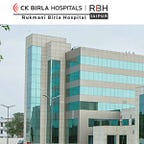Renal Parenchymal Disease Is It Dangerous
Renal Parenchymal Diseases are problems affecting the renal parenchymal, which is the functional section of the kidney including the renal cortex (the outermost part of the kidney) and the renal medulla. The outer part of the kidney — the renal cortex — contains nephrons that host the glomeruli, which act as the primary filters for blood that is passing through the kidney, and renal tubules — that are responsible for modification of the fluid into urine. On the other hand, renal medulla comprised primarily of tubules and ducts that aid the flow of urine towards excretion. All types of diseases affecting these parts of the kidneys are known as renal parenchymal diseases. Such disease can be congenital or acquired; the most common causes of chronic renal failures are uncontrolled hypertension and diabetes.
Renal parenchymal diseases can be very dangerous since they primarily affect the kidney functioning and can cause renal failures, in severe cases. Kidneys play a very critical role in filtration of waste products from the blood. These organs recycle usable electrolytes and also direct excessive waste into the urine, which is excreted from the body. Moreover, kidneys play a critical role in regulating blood pressure, electrolyte balance, as well as red blood cell production.
As mentioned, in extreme cases, renal parenchymal diseases can cause renal failures which could be because of pre-renal, renal or post-renal causes.
Pre-renal causes such as low blood volume, dehydration, tend to affect the blood supply to kidneys
What causes Renal Parenchymal Diseases?
The causes of renal parenchymal disease vary from person-to-person. Some of the common issues which can lead to these diseases include:
- Bacterial and viral infections
- Kidney stones
- High blood pressure
- Diabetes
- Auto-immune diseases
- Polycystic kidney disease
- Hereditary problems
Moreover, some other causes can give birth to pre-renal, renal and post-renal problems which lead to kidney failures.
- Pre-renal issues are related to the blood supply of the kidneys which is affected due to factors including low blood volume, dehydration, low intake of fluids, diuretics, etc.
- Renal issues are related to the direct damage of the kidneys caused by factors such as sepsis, medications, multiple myeloma, etc.
- Post renal issues affect the outflow of urine from the body which is hampered by factors such as kidney stones, prostatic cancer, bladder obstruction, abdominal tumours, etc.
These pre-renal, renal and post-renal complications can give birth to renal parenchymal disease.
What are the symptoms of Renal Parenchymal Diseases?
Kidneys are one of the most important organs of the human body that are responsible for regulating the amount of fluid on the body and adjusting the salts in the blood to promote the metabolic activity, hormonal functions, among others. In some patients, symptoms will develop late at an advanced stage. On the other hand, some common signs that help detect renal parenchymal diseases include:
- Swollen hands, feet and eyes
- High blood pressure
- Anaemia
- Bone changes
- Blood in urine
- Abdominal swelling
- Loss of appetite
- Itching
- Nausea
- Vomiting
- Fatigue, lethargy and weakness
- Joint pain
- Frequent night urination
- Dizziness
- Shortness of breath
How to diagnose Renal Parenchymal Disease?
Renal parenchymal diseases can be asymptomatic early on and hence, diagnosis is the only way to detect these diseases in cases where symptoms are now shown. Diagnosis can be made through:
Clinical exams: Renal parenchymal diseases are typically identified through lab and urine tests. The urine tests can provide information on the level of blood and protein in the urine; and on the other hand, blood tests can provide clarity on the abnormal levels of BUN, creatinine, and a disproportionate glomerular filtration rate (GFR).
Imaging: Imaging tests such as MRI, MRA, CTA are used to evaluate the kidneys and show their internal health and the blood supply.
What is the treatment for Renal Parenchymal Disease?
The renal parenchymal disease does not have a definitive treatment, though the symptoms and underlying conditions can be effectively managed to control the damage. Apart from medical treatment, some important lifestyle modifications will be needed to treat renal parenchymal disease; these include:
- Watching the calorie intake
- Increasing physical activity
- Quitting smoking
- Limiting alcohol intake
- Increasing fluid intake
- Making dietary changes to adopt a healthy, nutritional diet
In severe cases of renal parenchymal diseases that cause renal failure, the patient will need dialysis or a kidney transplant for survival.
Overall, the renal parenchymal disease can be really dangerous and can also be fatal if not diagnosed early or in cases, where adequate medical treatment is not received. It is important to get regular screenings, diagnostic tests done to detect the issues early on the stages and prevent serious complications such as renal failure. Moreover, it is best to follow preventive measures and a healthy lifestyle to keep kidneys healthy.
Source:- https://rbh.ckbirlahospitals.com/title/renal-parenchymal-disease-is-it-dangerous
